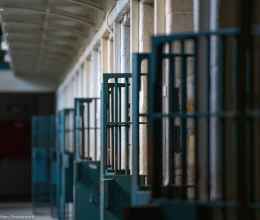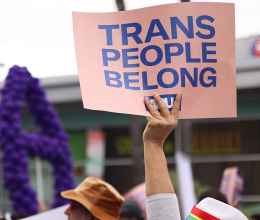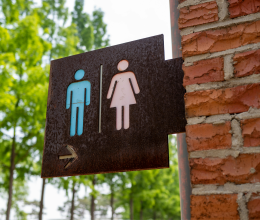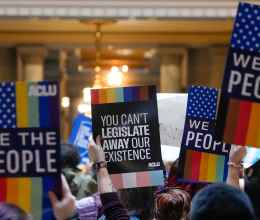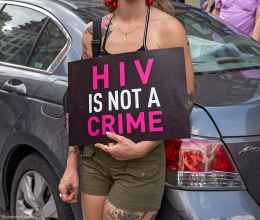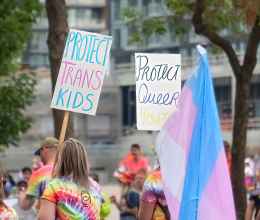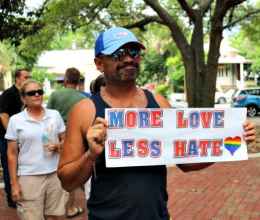
“Hey. Have you looked at your phone yet this morning?”
My partner, Elliot, is a morning person, at least compared to me. Sunday mornings, it’s not unusual for me to find him already in the living room with a cup of coffee, halfway through with breakfast, reading a book or the morning’s news on a phone or tablet as I’m still blinking the sleep from my eyes.
What was different on June 12 of last year was how he greeted me when I walked into the living room. Not the usual cheery “Good morning!” or day-starting small talk about how’d you sleep and the errands we need to run today.
Instead, a question asked in a low, sad voice, heavy with the burden of what he was about to have to tell me.
“Have you looked at your phone yet this morning?”
One year ago today, a gunman walked into the Pulse nightclub in Orlando and began shooting. It was the worst mass shooting in American history, and the largest hate crime ever committed against LGBTQ Americans.
Days after the shooting, I wrote about the unique pain for a gay man living in America of having a place like Pulse violated. These are places where LGBTQ people can feel safe, welcome, and immediately understood. I happened to go to Pulse one time before the killing, but regardless of whether you were a regular or had never heard of the place, the point was that someone came into our home and killed 49 of our brothers and sisters.
In the days and weeks that followed, there was a particular response to the killing that made me, frankly, angry. That was the effort on the part of some to minimize the identities of the victims and explain the killing strictly through the lens of Islamic extremist terrorism – despite the contradictory understanding of the killer that was coming into focus.
Part of this, I understood at the time, was a cynical effort by some politicians to exploit the pain of one marginalized community to further marginalize another. It was typified by our now-president tweeting “Appreciate the congrats for being right on radical Islamic terrorism,” the morning of the shooting before the number and names of those who were murdered were even known.
But it wasn’t until recently that I understood why the effort to de-center the victims from the story of the Pulse killings resonated so strongly with some: it was an effort to try to comprehend the incomprehensible by folding this story into one with a convenient villain, the “Muslim terrorist.”
But LGBTQ people don’t need a boogeyman. We already understand how hate and violence can be visited upon us, particularly queer people of color. For us, what happened at Pulse exists as part of the ongoing story of violence against our community, which continues to this day with twelve transgender women of color murdered in America so far this year. Like many marginalized groups, we make community and find strength in one another, but we also have to learn to live with the fear of meaningless, incomprehensible violence.
I’d like to say that the legacy of the Pulse shooting is that we’ve seen an end to violence against the marginalized. Although there has, fortunately, been nothing like the massacre of June 12, 2016 in the year that followed, there have still been other attacks on marginalized groups. There have been other “have you looked at your phone yet” moments, usually involving a federal government that is now hostile to immigrants, Muslims, transgender people, and other minority groups.
One year after the Pulse shooting, scapegoating of the other is government policy.
But I take heart in the fact that it isn’t working the way the scapegoaters would hope. Not only are the administration’s attacks on Muslims being blocked by the courts in lawsuits filed by the ACLU and others, but people are rejecting the idea that we should fear our neighbors.
Yesterday, I attended a rally in Fort Lauderdale to commemorate Pride Month and honor the victims of the Pulse shooting. Speakers not just from the LGBTQ community, but immigrants’ rights groups, homeless advocates, and yes, the Muslim community, spoke and stood in solidarity as we remembered the 49. The assembled crowd cheered just as loudly when my colleague spoke about the ACLU’s work defending the rights of Muslims as when she described our work protecting LGBTQ rights. They understood that an attack on any marginalized group is an attack on all of us.
Elliot and I left that rally with a friend of ours who just launched a new non-profit for LGBTQ people of color. We headed to a bar – not entirely unlike Pulse – to have a drink and talk about ways our organizations can work together. We bumped into old acquaintances, and watched as the closing party for a local transgender arts festival turned into an impromptu karaoke night. We took out our phones for photos of the moment — our own story on our terms to look at and share with others.
Perhaps the legacy of the Pulse shooting one year later is how much things haven’t changed. One year later, queer people go to gay bars to drink and laugh and strengthen our communities. We honor and remember those lost to violence, but won’t let fear turn us against our neighbors, or allow ourselves to be pitted against other minority groups.
We are resilient. And as I wrote one year ago in the days after the attack: we will never stop fighting back.
Baylor Johnson is Deputy Director of Communications for the ACLU of Texas. He previously served as Director of Communications for the ACLU of Florida.
